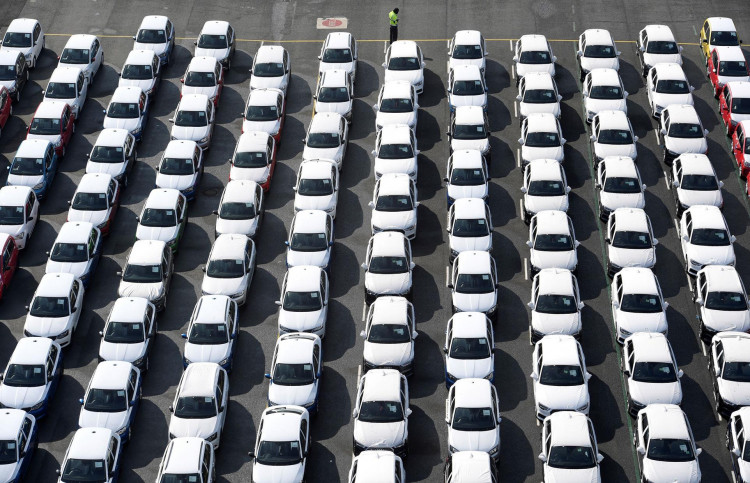Germany on Thursday reported its worst ever quarter-to-quarter contraction of its gross domestic product (GDP), with economic growth plunging 10.1% in the second quarter from the first quarter.
On a year-on-year basis, Germany's economy shrank 11.7% despite a measured reopening of businesses intended to gradually get the economy back on its feet. Economists had predicted a 9% quarter-on-quarter Q2 GDP shrinkage.
Germany, Europe's strongest economy, saw its export-led economy reach the point of collapse in the second quarter as consumer demand at home and abroad faded due to the huge economic slowdown triggered by the COVID-19 pandemic.
The Q2 GDP plunge "wiped out nearly 10 years of growth," said Florian Hense, economist at Berenberg Bank in Hamburg. He did, however, add that the contraction "could have been much worse."
The contraction was the biggest drop since quarterly growth figures began being compiled in 1970, said the Federal Statistical Office. or Destatis. The plunge was far worse than the previous worst-ever recorded performance: a 4.7% plunge in the first quarter of 2009 during the Great Recession.
Destatis said exports, imports, consumer spending and investment in equipment "massively collapsed" during the second quarter. It said the massive plunge in Germany's GDP was led by exports, consumer spending, and investment.
"This was the largest decline since the beginning of quarterly GDP calculations for Germany in 1970," Destatis said in its analysis. "Consumer spending suffered because government-imposed COVID-19 countermeasures forced German consumers to massively reduce spending."
Destatis estimates German consumer spending plummeted $154 billion (€130 billion) in Q2.
The German government sought to cushion the severe drop in growth with a multibillion-euro stimulus package of emergency loans, tax breaks and credit guarantees. Economists noted that federal government programs to keep workers on payrolls has kept unemployment in check. Germany's jobless rate rose slightly to 7.8% in June from 7.7% in May.
Germany has also cautiously reopened for business, but economists estimate economic growth won't reach pre-pandemic levels until 2022 at the earliest. In any event, any recovery in Germany's economy will be "a long ride," according to economist Carsten Brzeski at ING Germany.
"This picture shows the deepest but also the shortest recession ever," said Brzeski. "All monthly indicators since May have already pointed to a strong rebound of economic activity in the course of what has been the worst quarterly performance ever."





